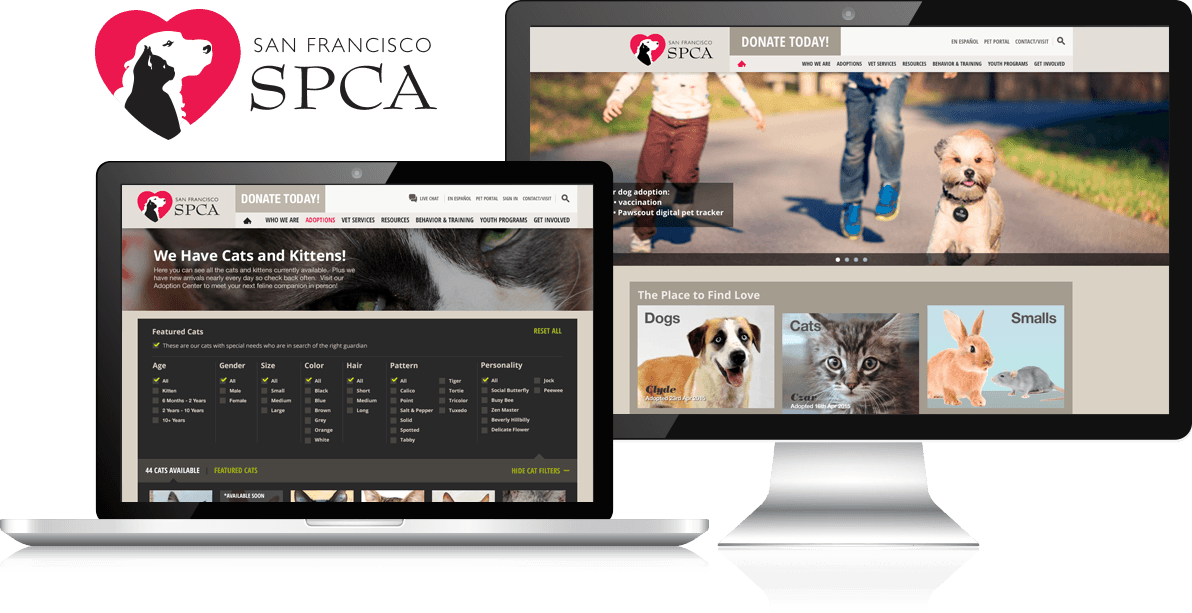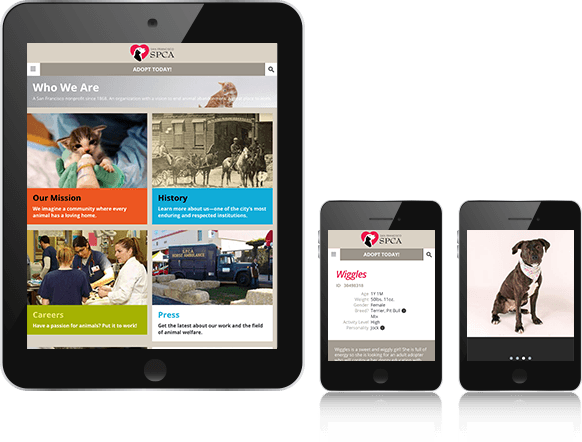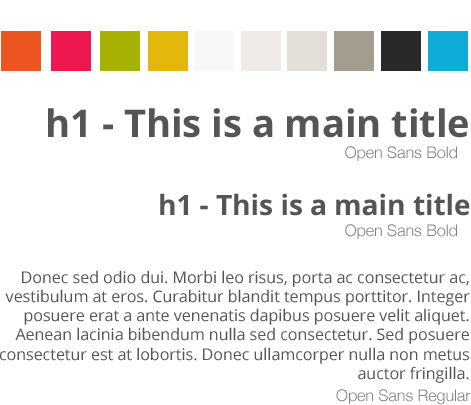
The Situation
Founders of the no-kill movement, the San Francisco SPCA (SF SPCA) is committed to preventing over population, rescuing animals, addressing “barriers to veterinary care,” and working to resolve pet behaviour issues through education and training.
When the SF SPCA came to Cheeky Monkey Media, the animals they helped had to spend too much time at the shelter and few people were coming in to adopt them. The website was a big problem. When people interested in adopting a pet came to the SF SPCA website, they found a website that had broken parts, was slow, and extremely difficult to navigate.
Things weren’t any easier for the staff who were charged with updating their nonprofit website, all while juggling a number of other high priority tasks. Given how long the website took to load and how difficult it was to change content on the website, we were actually surprised that the website was bringing in as many people as it was.
Nevertheless, something had to change.
The Solution
The site was slow, because it was built on an old framework and there were multiple platforms running at the same time. Additional issues arose when the different platforms didn’t work well together. So, the monkeys migrated the website to a Drupal 7 framework, which has a better working foundation and allows for simplified cross-platform interactions. In other words, with Drupal 7, SF SPCA was able to easily manage their website and streamline many of their daily online administrative tasks. All the while, keeping the site working great on both desktop and mobile with Drupal’s responsive design capabilities.
We also integrated some fantastic new creative templates by Tractor Studios (another SF SPCA partner), which saved the nonprofit money and allowed visitors to navigate the site easily and get the information they needed.
And the best part!? In addition to a number of other changes, the new website contributed to a decrease in the length of time animals spent in the shelter. Sweet!
From 2014 to 2015, the average length of stay per animal decreased from 45.4 days to 40.1 days, a 11.7% decrease.






